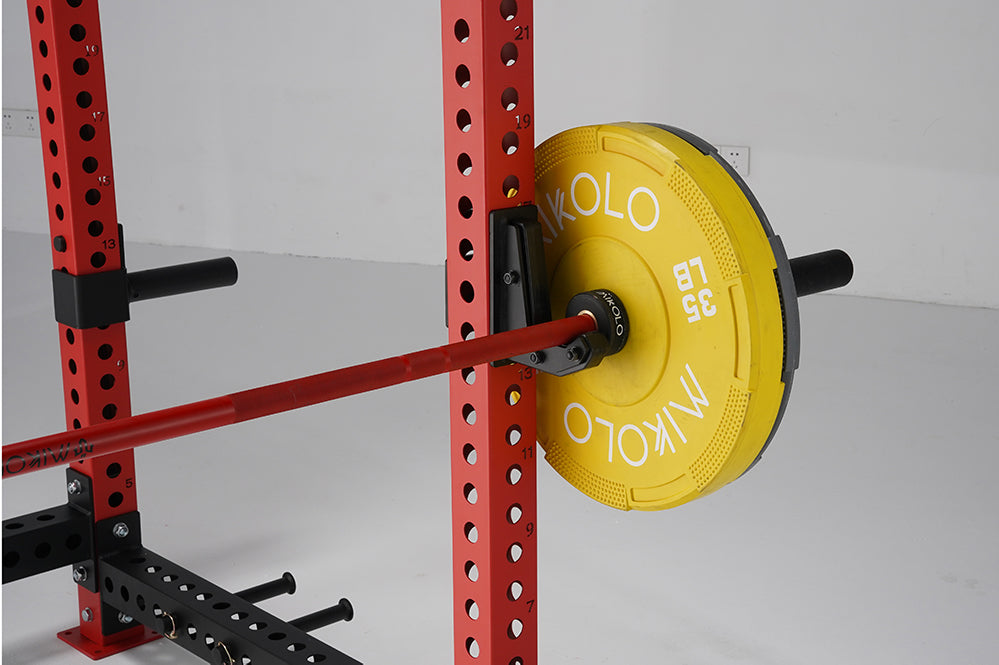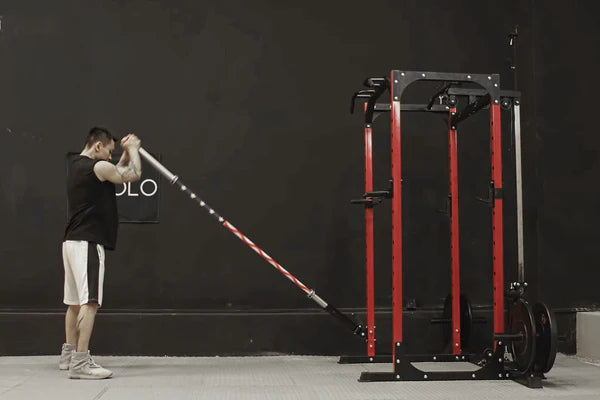As you start your fitness journey or build your home gym, there’s an important question to ask: What is the weight of a short barbell? It sounds like a simple question, but it’s a crucial one to ensure you reach your workout goals and track your progress. The weight of your barbell is often overlooked, but it can greatly impact your workouts, the exercises you do, and your overall fitness.
In this article, we’ll cover the different types of barbells, their weights, and why it’s important to know. Whether you’re a beginner, advanced, or somewhere in between, knowing your equipment specs can make a big difference in your fitness results.
Fitness is full of various barbells, each designed for a specific purpose. Let’s break it down!
Different Types of Barbells
Before we discuss the weight of a short barbell, it’s important to know there are several types of barbells, each with its own purpose. Here’s a quick rundown:
-
Standard Barbells: The ones you typically see at commercial gyms. Standard barbells usually weigh 45 pounds (20.4 kg) and are approximately 7 feet long.
-
Olympic Barbells: Designed for Olympic lifting, Olympic barbells also weigh 45 pounds, but have specific markings (grip rings) and rotating sleeves.
-
Powerlifting Barbells: Some powerlifters use a different type of barbell, which can weigh anywhere from 15-45 pounds, depending on the lifters’ preferences.
-
Short Barbells: Also known as trap barbells or delegate squat bars, short barbells are designed for safety and ease of use when performing squats and lunges. They’re usually around 10-15 pounds.
-
Empty vs. Loaded: Barbells can be empty (no weight) or loaded with weight plates. A barbell with no weights is still its maximum weight, which is important to consider.
-
EZ Curl Bars: Bent-shaped bars used for bicep and tricep exercises. EZ curl bars usually weigh 18-25 pounds (8-11 kg).
-
Trap or Hex Bars: Used for deadlifts, trap bars typically weigh 45-55 pounds (20-25 kg).
-
Short Barbells: Our friend, the short barbell! We’ll focus on these bad boys since they’re often used in home gyms. Short barbells come in different weights and lengths.
Understanding Short Barbells
Short barbells are amazing pieces of equipment that are perfect for small home gyms or when you only need to perform certain exercises that don’t require a full-sized barbell. They come in all shapes and sizes, making them super versatile for many workout routines.
Weight of a Short Barbell
So, how much does a short barbell weigh? Since there is no standardized short barbell, they can weigh anywhere from 10 pounds (4.5 kg) to 35 pounds (15.9 kg). Here’s a more detailed explanation:
-
10-15 Pounds: Lightweight short barbells are great for beginners or when form and technique are more important than heavy weight.
-
20-25 Pounds: These short barbells offer a good amount of resistance and are suitable for intermediate lifters. They’re versatile and great for many exercises.
-
30-35 Pounds: Usually favored by advanced users, these short barbells offer a lot of resistance and are great for intense workouts.
It’s important to know your short barbell’s exact weight, especially when tracking your progress or following a workout program. Always check the manufacturer’s specs before buying or using a short barbell.
Best Practices for Using Short Barbells
Now that we’ve covered the weight of a short barbell, here are some best practices for using them:
Choosing the Right Weight
The weight you choose will greatly impact your success. Choose a weight that allows you to maintain good form throughout your entire exercise. As you get stronger and more confident, you can increase the weight.
Emphasizing Proper Form
Proper form is always important, regardless of the weight you’re lifting. A short barbell can be lightweight or heavy, but proper form will ensure you get the most out of your workout while staying safe. Focus on your posture, grip, and range of motion to get the most out of your short barbell exercises.
Incorporating Diverse Exercises
Short barbells are versatile and can be used for a variety of exercises. Mix up your routine to keep your workouts interesting and prevent plateaus.
Short barbells are super versatile and can be used for a variety of exercises, such as:
-
Bicep Curls
-
Tricep Extensions
-
Shoulder Presses
-
Front Squats
-
Deadlifts
Mixing up your exercises keeps your workouts interesting and targets multiple muscle groups.
The Significance of Knowing Your Equipment's Weight
Knowing your short barbell’s weight is important for several reasons:
-
Progress Tracking: Helps you measure your progress over time.
-
Safety: Ensures you’re lifting a weight that’s suitable for your skill level.
-
Program Adherence: Allows you to follow your program correctly.
-
Equipment Selection: Helps you choose the right barbell for each exercise.
Knowing this information benefits your overall fitness journey, allowing you to use your equipment correctly.
To help visualize a short barbell setup, imagine using it with a Smith machine setup. A Smith machine guides the bar on a rail, which helps engage more muscle and increases safety when performing exercises like shoulder presses and lunges.
Conclusion
Barbells are a great piece of equipment for any fitness routine. Whether you’re lifting light weights with a short barbell or heavy weights with a standard barbell, it’s important to know the specifics. Next time you wonder, “What is the weight of a short barbell?” you’ll be better equipped to make an informed decision for your fitness journey. Arm yourself with the right knowledge and weights to ensure your fitness success stays on track.











































Leave a comment
This site is protected by hCaptcha and the hCaptcha Privacy Policy and Terms of Service apply.